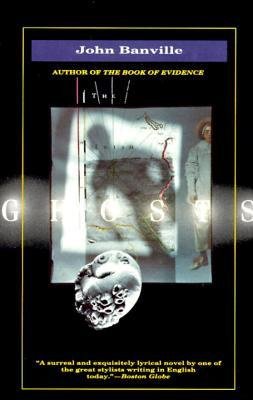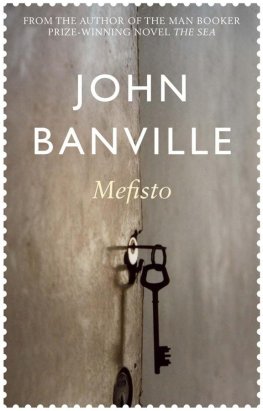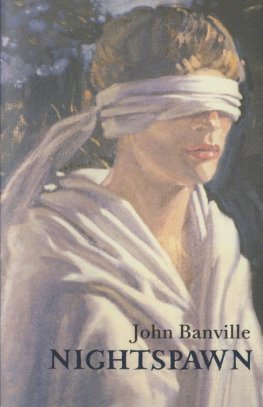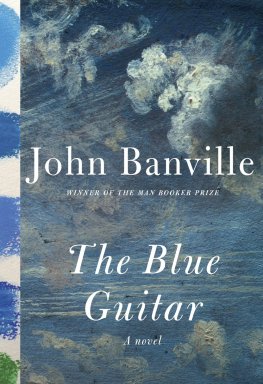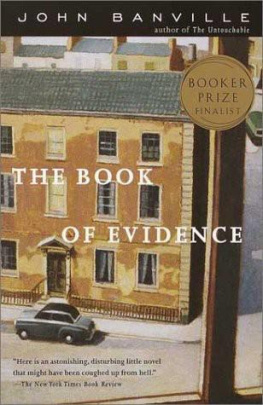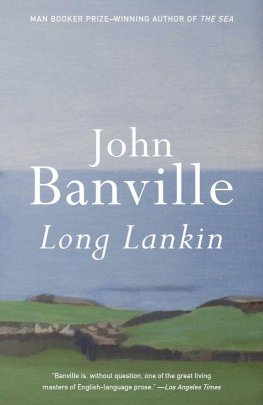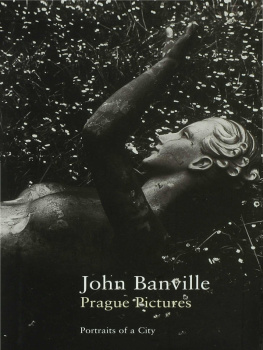John Banville - The Sea
Here you can read online John Banville - The Sea full text of the book (entire story) in english for free. Download pdf and epub, get meaning, cover and reviews about this ebook. year: 2006, publisher: Vintage, genre: Art. Description of the work, (preface) as well as reviews are available. Best literature library LitArk.com created for fans of good reading and offers a wide selection of genres:
Romance novel
Science fiction
Adventure
Detective
Science
History
Home and family
Prose
Art
Politics
Computer
Non-fiction
Religion
Business
Children
Humor
Choose a favorite category and find really read worthwhile books. Enjoy immersion in the world of imagination, feel the emotions of the characters or learn something new for yourself, make an fascinating discovery.

- Book:The Sea
- Author:
- Publisher:Vintage
- Genre:
- Year:2006
- Rating:4 / 5
- Favourites:Add to favourites
- Your mark:
- 80
- 1
- 2
- 3
- 4
- 5
The Sea: summary, description and annotation
We offer to read an annotation, description, summary or preface (depends on what the author of the book "The Sea" wrote himself). If you haven't found the necessary information about the book — write in the comments, we will try to find it.
The Sea — read online for free the complete book (whole text) full work
Below is the text of the book, divided by pages. System saving the place of the last page read, allows you to conveniently read the book "The Sea" online for free, without having to search again every time where you left off. Put a bookmark, and you can go to the page where you finished reading at any time.
Font size:
Interval:
Bookmark:
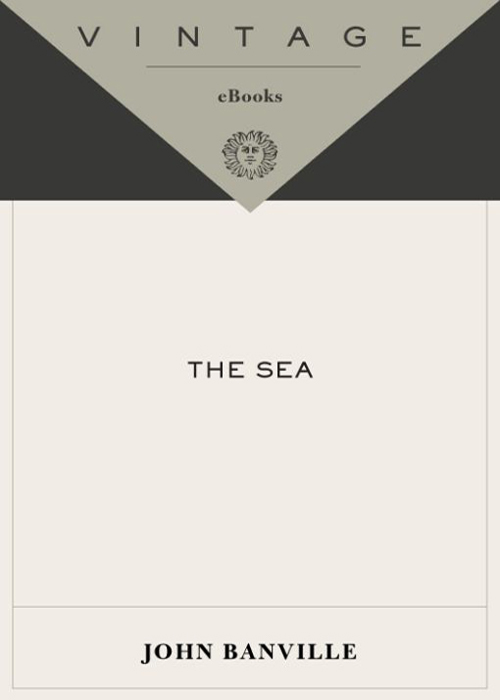
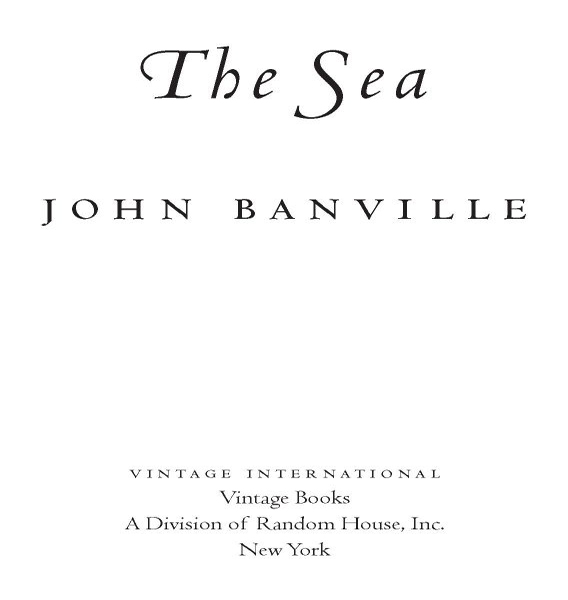
Table of Contents
To Colm, Douglas, Ellen, Alice
Acclaim for John Banvilles
The Sea
A piece of violent poetryan autumnal, elegiac novel.... Treacherously smart and haunting, its story of a ravaged self in search of a reason to go on is cloaked in wave after wave of magnificent but hardly consoling prose. TheBoston Globe
An utterly contemporary novel that nonetheless could only have come from a mind steeped in the history of the novel and deeply reflective about what makes fiction still worthwhile.... John Banville deserves his Booker Prize. LosAngeles Times Book Review
[Banville] is prodigiously gifted. He cannot write an unpolished phrase, so we read him slowly, relishing the stream of pleasures he affords. Everything in Banvilles books is alive.... He is a writers writer [who] can conjure with the poetry of people and places. TheIndependent (London)
Mesmerizing.... Banville masterfully melds the past with the present, allowing Max to find strength in what remains behind. The Seattle Times
Banville has a reputation as a brilliant stylistpeople like to use the word Nabokovian in reference to his precisely worded books. His fourteenth novel, The Sea, has so many beautifully constructed sentences that every few pages something cries out to be underlined. TheChristian Science Monitor
Banvilles latest novel is simultaneously about growing up and growing old, [about] rites of passage: coming-of-age and coming of old age; awakening and dying.... Banville has a talent for sensuous phrasing, and pungent observation of human frailty. The Sunday Times (London)
A brilliant, sensuous, discombobulating novel. TheSpectator
A richly intriguing book.... This novel is impeccably written, in a prose that is like an intricate and glorious spiders web, imbued with vivid detail [and] laced with black humor. TheNation
Banville writes novels of complex patterning, with grace, precision and timing, and there are wonderfully digressive meditations. TheGuardian (London)
Banville is a master at capturing the most fleeting memory or excruciating twinge of self-awareness with riveting accuracy. People
This is a novel in which all Banvilles remarkable gifts come together to produce a real work of art, disquieting, disturbing, beautiful, intelligent, and in the end, surprisingly, offering consolation. TheScotsman (Edinburgh)
Banville has written an utterly absorbing novel about the strange workings of grief, and the gratuitous dramas of memory. LondonReview of Books
I
They departed, the gods, on the day of the strange tide. All morning under a milky sky the waters in the bay had swelled and swelled, rising to unheard-of heights, the small waves creeping over parched sand that for years had known no wetting save for rain and lapping the very bases of the dunes. The rusted hulk of the freighter that had run aground at the far end of the bay longer ago than any of us could remember must have thought it was being granted a relaunch. I would not swim again, after that day. The seabirds mewled and swooped, unnerved, it seemed, by the spectacle of that vast bowl of water bulging like a blister, lead-blue and malignantly agleam. They looked unnaturally white, that day, those birds. The waves were depositing a fringe of soiled yellow foam along the waterline. No sail marred the high horizon. I would not swim, no, not ever again.
Someone has just walked over my grave. Someone.
The name of the house is the Cedars, as of old. A bristling clump of those trees, monkey-brown with a tarry reek, their trunks nightmarishly tangled, still grows at the left side, facing across an untidy lawn to the big curved window of what used to be the living room but which Miss Vavasour prefers to call, in landladyese, the lounge. The front door is at the opposite side, opening on to a square of oil-stained gravel behind the iron gate that is still painted green, though rust has reduced its struts to a tremulous filigree. I am amazed at how little has changed in the more than fifty years that have gone by since I was last here. Amazed, and disappointed, I would go so far as to say appalled, for reasons that are obscure to me, since why should I desire change, I who have come back to live amidst the rubble of the past? I wonder why the house was built like that, sideways-on, turning a pebble-dashed windowless white endwall to the road; perhaps in former times, before the railway, the road ran in a different orientation altogether, passing directly in front of the front door, anything is possible. Miss V. is vague on dates but thinks a cottage was first put up here early in the last century, I mean the century before last, I am losing track of the millennia, and then was added on to haphazardly over the years. That would account for the jumbled look of the place, with small rooms giving on to bigger ones, and windows facing blank walls, and low ceilings throughout. The pitchpine floors sound a nautical note, as does my spindle-backed swivel chair. I imagine an old seafarer dozing by the fire, landlubbered at last, and the winter gale rattling the window frames. Oh, to be him. To have been him.
When I was here all those years ago, in the time of the gods, the Cedars was a summer house, for rent by the fortnight or the month. During all of June each year a rich doctor and his large, raucous family infested itwe did not like the doctors loud-voiced children, they laughed at us and threw stones from behind the unbreachable barrier of the gateand after them a mysterious middle-aged couple came, who spoke to no one, and grimly walked their sausage dog in silence at the same time every morning down Station Road to the strand. August was the most interesting month at the Cedars, for us. The tenants then were different each year, people from England or the Continent, the odd pair of honeymooners whom we would try to spy on, and once even a fit-up troupe of itinerant theatre people who were putting on an afternoon show in the villages galvanised-tin cinema. And then, that year, came the family Grace.
The first thing I saw of them was their motor car, parked on the gravel inside the gate. It was a low-slung, scarred and battered black model with beige leather seats and a big spoked polished wood steering wheel. Books with bleached and dog-eared covers were thrown carelessly on the shelf under the sportily raked back window, and there was a touring map of France, much used. The front door of the house stood wide open, and I could hear voices inside, downstairs, and from upstairs the sound of bare feet running on floorboards and a girl laughing. I had paused by the gate, frankly eavesdropping, and now suddenly a man with a drink in his hand came out of the house. He was short and top-heavy, all shoulders and chest and big round head, with close-cut, crinkled, glittering-black hair with flecks of premature grey in it and a pointed black beard likewise flecked. He wore a loose green shirt unbuttoned and khaki shorts and was barefoot. His skin was so deeply tanned by the sun it had a purplish sheen. Even his feet, I noticed, were brown on the insteps; the majority of fathers in my experience were fish-belly white below the collar-line. He set his tumblerice-blue gin and ice cubes and a lemon sliceat a perilous angle on the roof of the car and opened the passenger door and leaned inside to rummage for something under the dashboard. In the unseen upstairs of the house the girl laughed again and gave a wild, warbling cry of mock-panic, and again there was the sound of scampering feet. They were playing chase, she and the voiceless other. The man straightened and took his glass of gin from the roof and slammed the car door. Whatever it was he had been searching for he had not found. As he turned back to the house his eye caught mine and he winked. He did not do it in the way that adults usually did, at once arch and ingratiating. No, this was a comradely, a conspiratorial wink, masonic, almost, as if this moment that we, two strangers, adult and boy, had shared, although outwardly without significance, without content, even, nevertheless had meaning. His eyes were an extraordinary pale transparent shade of blue. He went back inside then, already talking before he was through the door. Damned thing, he said, seems to be... and was gone. I lingered a moment, scanning the upstairs windows. No face appeared there.
Next pageFont size:
Interval:
Bookmark:
Similar books «The Sea»
Look at similar books to The Sea. We have selected literature similar in name and meaning in the hope of providing readers with more options to find new, interesting, not yet read works.
Discussion, reviews of the book The Sea and just readers' own opinions. Leave your comments, write what you think about the work, its meaning or the main characters. Specify what exactly you liked and what you didn't like, and why you think so.

